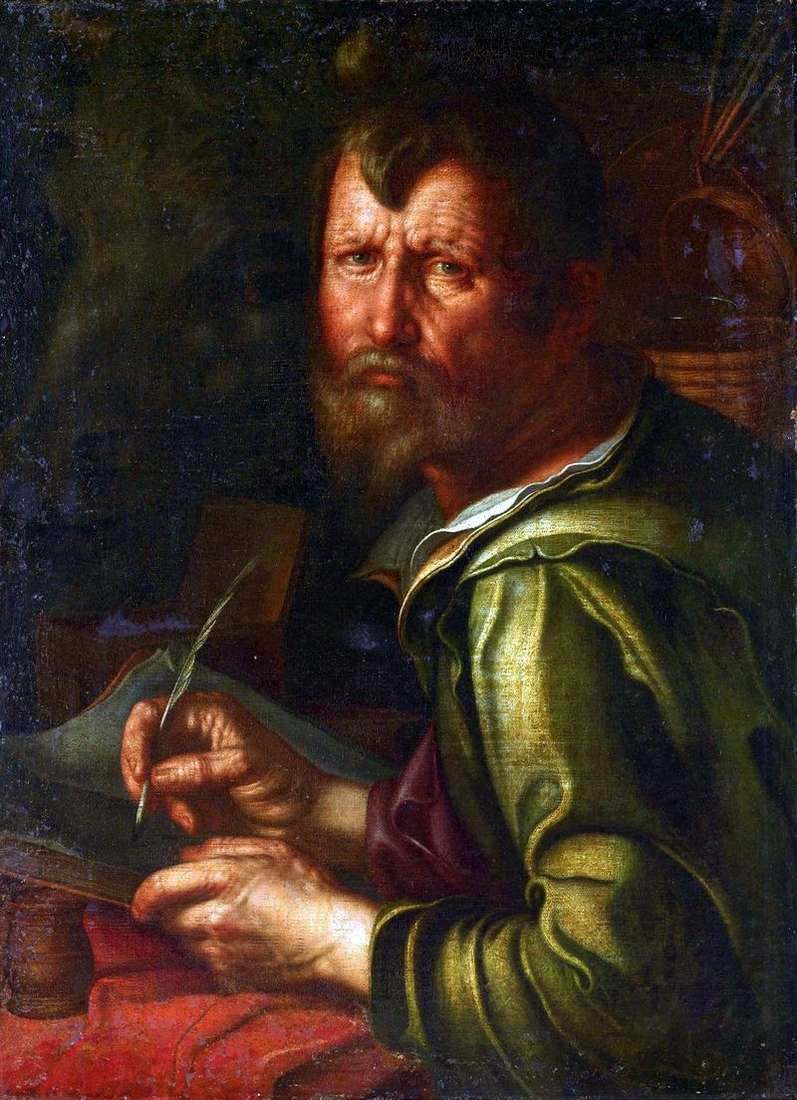
Painting of the Dutch painter Joachim Eytewal “The Evangelist Luke”. The size of the picture is 68 x 50 cm, copper, oil. Luke, an evangelist, according to tradition, one of the seventy disciples of Christ. His very name – from the Roman Lucanus or Lucilius – indicates his pagan origin: Luke was one of the first educated pagans to accept the gospel of Christ. In his occupation he was a doctor. “Beloved physician” calls him in his epistles the Apostle Paul, who used his help during his illnesses.
Little is known about Luke’s life. According to Eusebius, Jerome, and others, Luke usually lived in Antioch of Syria, there he recognized the apostle Paul and, becoming a devoted follower and collaborator, accompanied him on his journeys and, among other things, on a sea voyage to Rome, during which it was so detailed and eloquently described by him shipwreck. Antiquity unanimously attributed to Luka two creations: the Gospel and the Acts of the Apostles. In both of these creations, the skillful hand of a historian is revealed, which, with extraordinary precision and concise narrative, was able to give a pictorial and, moreover, pragmatically motivated narrative.
The gospel of Luke is already quoted from ancient writers – Justin the Philosopher, Tertullian and others; The Acts are first mentioned in the Epistle of the Church of Vienne and Lyons, and then this book is quoted from St. Irenaeus, Clement of Alexandria, Tertullian and others. Because there are no clear indications of the destruction of Jerusalem in both books, many believe that they were written before this event; Bleek, Kame, Holtzman and some other writers refer them to a later time.
Criticism in the face of the main representatives of the Tübingen school tried to question the authenticity and historical certainty of both the Gospel and especially the Acts, in which much was declared unhistorical and self-contradictory; but this criticism was based mainly on the denial of the entire supernatural, and its arguments soon lost significance, especially when thanks to the latest research and excavations in place of the cities described by the Evangelist Luke as a companion during the travels of the apostle Paul, many historical and everyday directions that previously considered unreliable and contrary to ancient evidence. Article source: Encyclopaedic dictionary of F. Brockhaus and I. Efron

 (2 votes, average: 4.00 out of 5)
(2 votes, average: 4.00 out of 5)